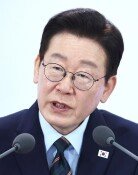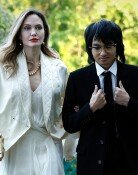[Editorial] Summit and Joint Military Drill
[Editorial] Summit and Joint Military Drill
Posted August. 11, 2007 07:09,
The possibility of downsizing or postponing the Ulchi Focus Lens (UFL), an annual exercise between South Korean and U.S. forces, is looming because the dates of the inter-Korean summit coincides with the joint drill. Although presidential spokesman Cheon Ho-seon denied the possibility, saying, So far, no such change has been deliberated, we cannot be optimistic about its outlook. Even Cheon admitted, We cannot rule out the possibility that this problem arises (in the process of negotiating the inter-Korean summit). Since the 33rd UFL is scheduled to take place between August 20 and 31, precisely overlapping with the summit, which will be held between August 28 and 30, there is a very slim chance that the North will let it slide without making a fuss.
In fact, the North has already demanded to stop the exercise. If large-scale war exercises and military build-up continue, we will fully prepare ourselves with means to strike back, the North Korean army said in a statement delivered on Friday to U.S. forces at the truce village of Panmunjeom. If the experience of the first inter-Korean summit held in 2000 is any guide, we can conclusively presume that the North will strongly urge the South to stop the UFL. Although the 2000 UFL had been scheduled two months after the first summit, the communist regime made it a big issue, eventually making the exercise be carried out on a smaller scale.
The UFL is a defense exercise against a North Korean invasion that has been annually held since 1975. As it has already been conducted 32 times, the North is also well aware of the fact that it is not a pre-emptive strike exercise. Therefore, its demand to suspend the UFL can be only viewed as an attempt to weaken the military alliance between South Korea and the U.S. The UFL must be carried out as concerns over security have been mounting ahead of the dismantlement of the ROK-US Combined Forces Command in 2012, the wartime command transfer, and the reduction in both the number and the roles of U.S. troops stationed in Korea.
If the North persistently demands to stop the UFL, the South Korean government, which has put forth enormous amount of effort to create the opportunity, will be tempted to make a concession. However, it will likely deal a heavy blow to the ROK and the U.S. military alliance. Preceding a joint exercise without any delay is a matter of showing a faith to an ally. The government must not change the plan for the UFL which involves more than 10,000 troops, including the Korean Army, U.S. forces in Korea and U.S. reinforcement troops stationed outside Korea.
If the government changes the plans for the UFL because of pressure from the North, it will not only hamper the military alliance with the U.S. but will also cause a crisis in national security.



![[단독]폴란드, 韓 해군 최초 잠수함 ‘장보고함’ 무상 양도 안받기로](https://dimg.donga.com/c/138/175/90/1/wps/NEWS/IMAGE/2026/02/27/133437397.1.jpg)

![‘노인 냄새’ 씻으면 없어질까?…“목욕보다 식단이 더 중요”[노화설계]](https://dimg.donga.com/c/138/175/90/1/wps/NEWS/IMAGE/2026/02/27/133434557.3.jpg)

